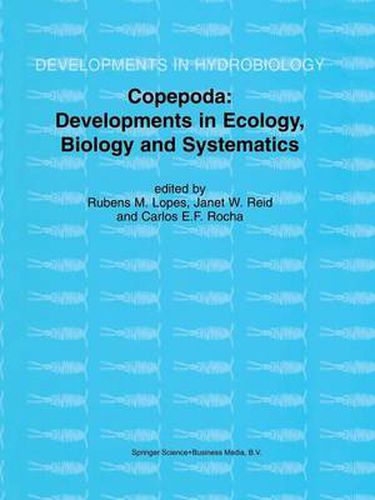Readings Newsletter
Become a Readings Member to make your shopping experience even easier.
Sign in or sign up for free!
You’re not far away from qualifying for FREE standard shipping within Australia
You’ve qualified for FREE standard shipping within Australia
The cart is loading…






This title is printed to order. This book may have been self-published. If so, we cannot guarantee the quality of the content. In the main most books will have gone through the editing process however some may not. We therefore suggest that you be aware of this before ordering this book. If in doubt check either the author or publisher’s details as we are unable to accept any returns unless they are faulty. Please contact us if you have any questions.
Schnack-Schiel et al., 1991; Drits et al., 1993, 1994; Graeve et al., 1994; Pasternak et al., 1994; Atkinson, 1995; Albers et al., 1996; Hagen & Schnack-Schiel, The study of copepod life cycles is essential to the 1996). Pasternak & Schnack-Schiel (this volume) understanding of their role and function in aquatic discuss the diet and feeding of dominant Antarctic ecosystems. Due to the high latitudes, Polar Ocean copepods. ecosystems are governed by a distinct seasonality in The aim of this study is to compile data on the life primary production. Herbivorous copepods, which - cycle of copepods gained by the different approaches. clude many important species, are strongly affected by Emphasis was laid on a detailed description of life this production cycle. It has been shown that copepods cycle strategies of dominant species in order to c- have developed specific adaptations to utilise sho- prehend more clearly the differences in adaptation to term food pulses and to endure periods of food scarcity the polar environment.
$9.00 standard shipping within Australia
FREE standard shipping within Australia for orders over $100.00
Express & International shipping calculated at checkout
This title is printed to order. This book may have been self-published. If so, we cannot guarantee the quality of the content. In the main most books will have gone through the editing process however some may not. We therefore suggest that you be aware of this before ordering this book. If in doubt check either the author or publisher’s details as we are unable to accept any returns unless they are faulty. Please contact us if you have any questions.
Schnack-Schiel et al., 1991; Drits et al., 1993, 1994; Graeve et al., 1994; Pasternak et al., 1994; Atkinson, 1995; Albers et al., 1996; Hagen & Schnack-Schiel, The study of copepod life cycles is essential to the 1996). Pasternak & Schnack-Schiel (this volume) understanding of their role and function in aquatic discuss the diet and feeding of dominant Antarctic ecosystems. Due to the high latitudes, Polar Ocean copepods. ecosystems are governed by a distinct seasonality in The aim of this study is to compile data on the life primary production. Herbivorous copepods, which - cycle of copepods gained by the different approaches. clude many important species, are strongly affected by Emphasis was laid on a detailed description of life this production cycle. It has been shown that copepods cycle strategies of dominant species in order to c- have developed specific adaptations to utilise sho- prehend more clearly the differences in adaptation to term food pulses and to endure periods of food scarcity the polar environment.